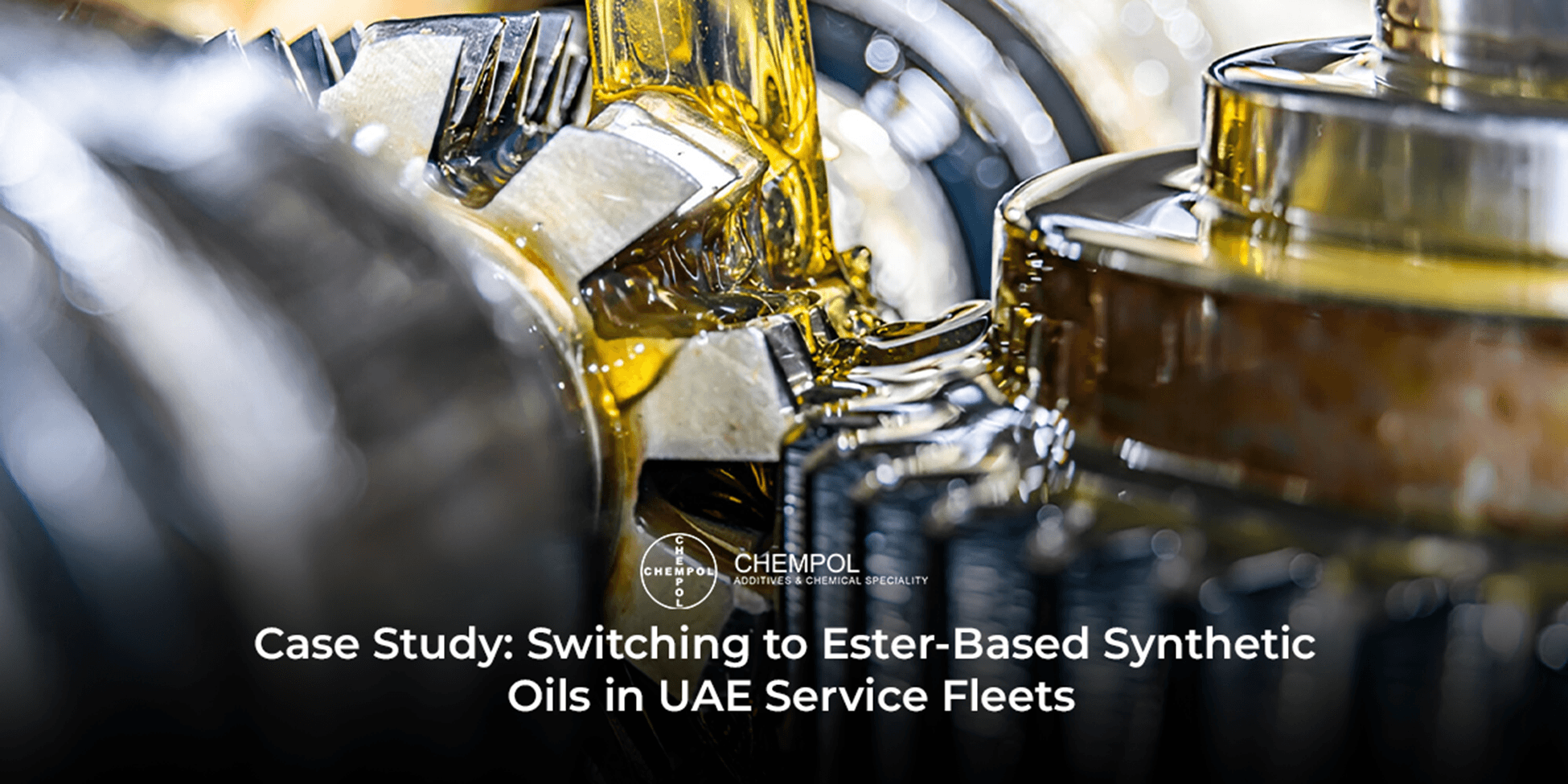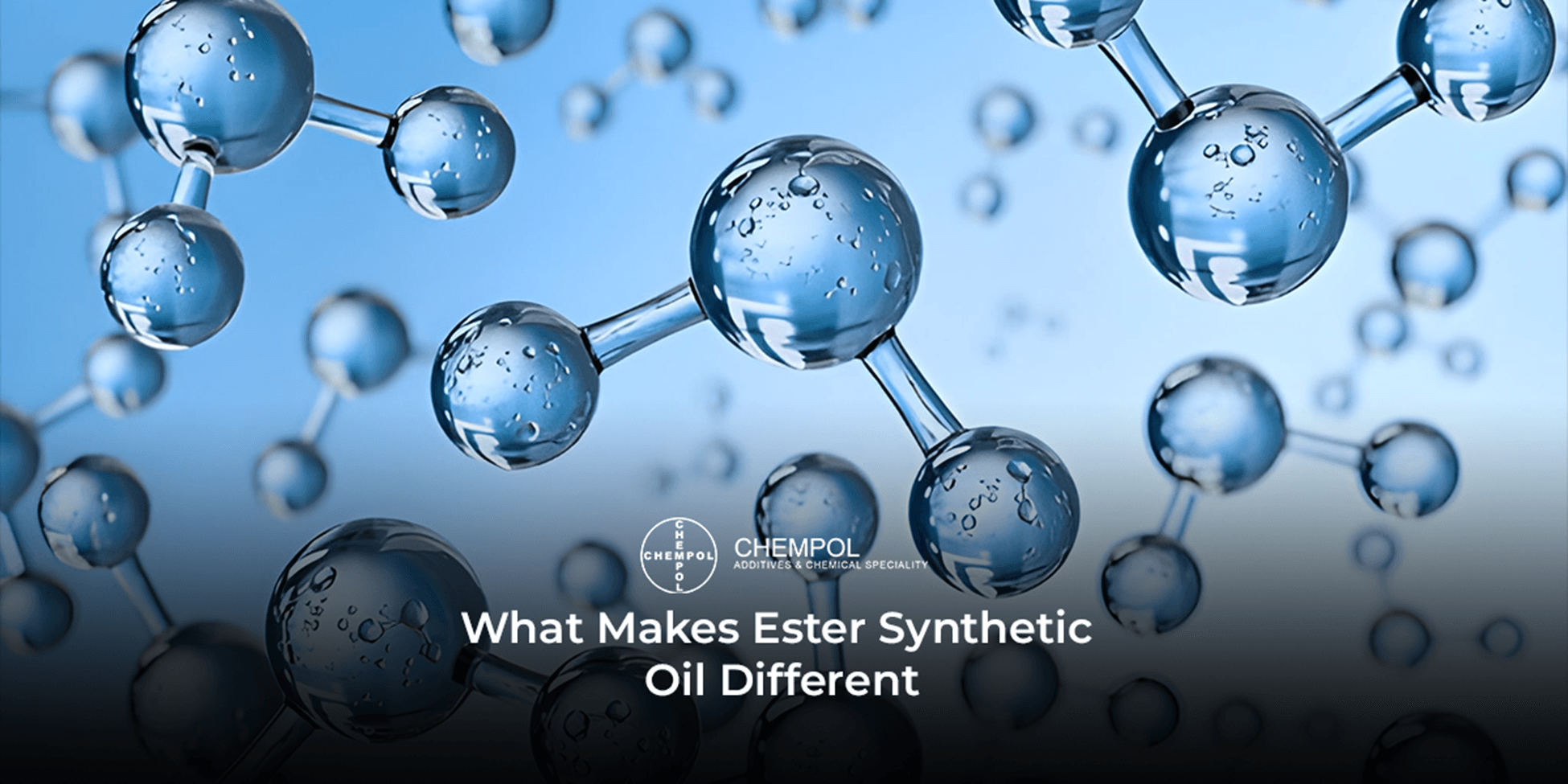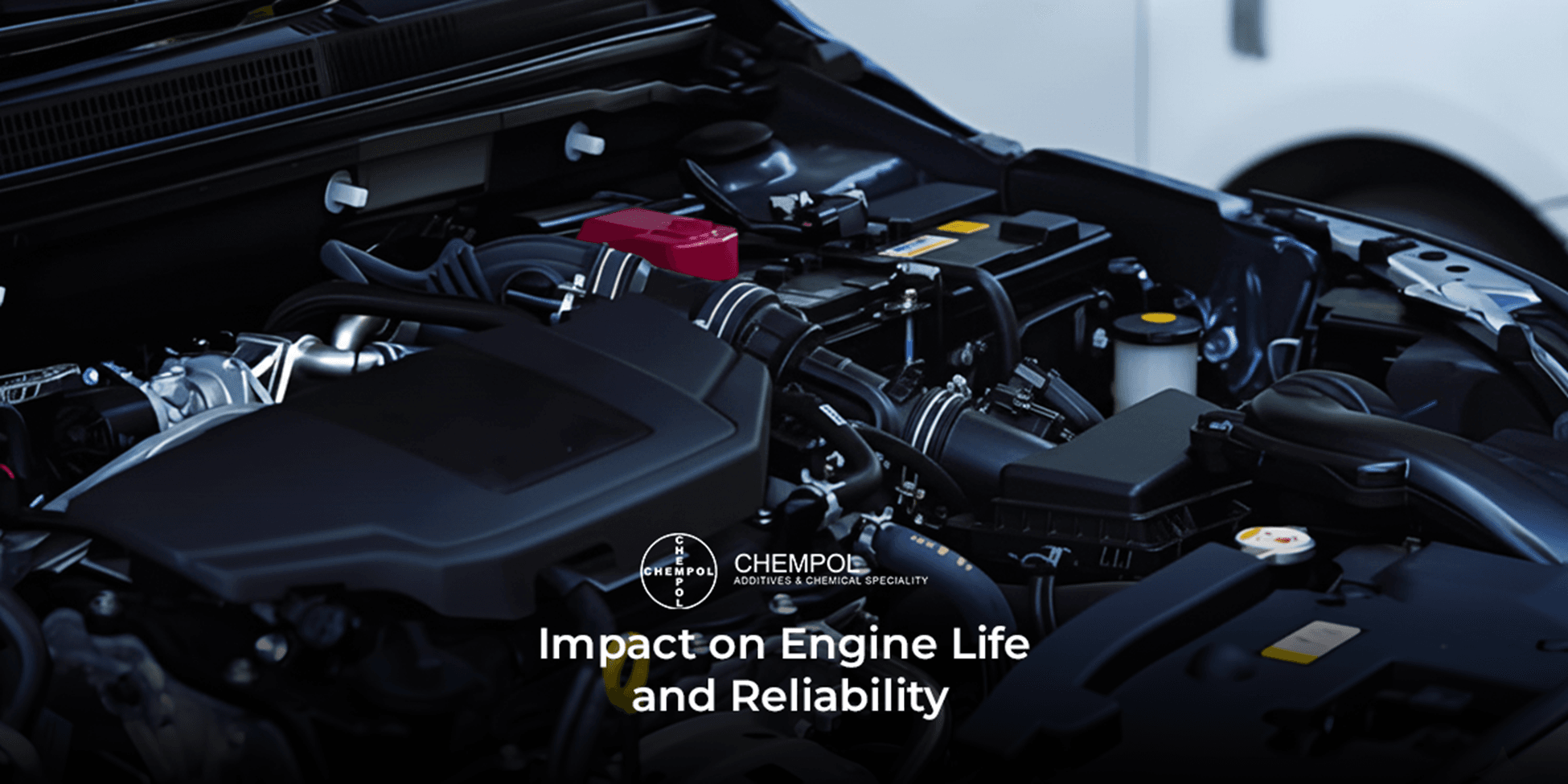[email protected]

Case Study: Switching to Ester-Based Synthetic Oils in UAE Service Fleets
The cars in the United Arab Emirates have to bear a lot of pressure under some of the harshest conditions. Heavy traffic constantly overheats the engines, even though the roads are long and the desert climate is hot. Taxis, leased, and service van fleets are the ones that most require good oil. When oil was changed to a synthetic ester in the UAE, the benefits were smoother running, cleaner engines, and lower maintenance costs.
This case study investigates the mechanisms and reasons behind the change that made the ester base oil in the UAE the smart choice for modern fleets. We will also discuss how Chempol is transforming the synthetic oil industry.
Why Do Fleets Need Change?
The service fleet in focus operated across Abu Dhabi and Dubai. It included light commercial vehicles, taxis, and maintenance trucks. The fleet had used regular synthetic oil in the UAE for years, but problems began to appear.
Engines were overheating during the summer months. Mechanics noticed sludge buildup and oil thickening after short intervals. Fuel consumption increased, and many vehicles required early oil changes. Despite using motor oil additives, the results didn’t last long.
The company needed an oil that could resist oxidation, perform well in extreme heat, and reduce friction without breaking down. This is when they decided to test ester lubricant options in the UAE.

What Makes Ester Synthetic Oil Different
Ester based synthetic oil in the UAE is not just a regular lubricant. It is made from ester-based oil, which has polar molecules. These molecules attach firmly to metal surfaces, forming a strong protective film. This layer stays intact even when the engine runs at high temperature. That’s why ester based lubricant is so popular in racing engines and aviation. It can handle high heat, pressure, and long running hours without losing its strength. Ester-based oils also act as natural lubricant additives. They clean and protect simultaneously. This means there is less need for additional synthetic or lube additives in the blend.
The Transition Process
The switch was done in three steps. First, the fleet’s old oil was flushed with a flushing engine oil cleaner to remove any residue. Then, the engines were filled with an ester based synthetic oil formulation and performance was monitored for six months. Mechanics tracked temperature, oil pressure, and mileage. They also checked for engine wear and buildup during each service. Within two months, the results began to show clear improvements.
Better Engine Protection and Cleanliness
Engines running on ester-based oil in the UAE stayed much cleaner. Mechanics reported little to no sludge or varnish formation. The ester lubricant in the UAE acted as a built-in detergent-dispersant, lifting impurities and keeping them suspended until the next oil change. The sticky nature of ester molecules also helped prevent dry starts. Even when vehicles sat idle overnight, a thin oil film remained on surfaces. This small change made a big difference; engine wear dropped by almost 20% after three months. The fleet supervisor noted, “The engines look much cleaner during inspections. We used to clean intake valves often, but not anymore. The oil does it for us.”
Performance in the UAE’s Hot Climate
The desert climate of the UAE is harsh on engines. Regular oils often thin out at high temperatures, reducing lubrication. But the ester based synthetic oil maintained its viscosity even at higher temperatures. During summer, when older oils used to burn off faster, the new ester-based oil held strong. It didn’t evaporate or oxidise easily. Mechanics also noted smoother throttle response and quieter idling in several vehicles. This stability made the ester lubricant an ideal choice for fleets that drive long distances daily.
Lower Maintenance and Fuel Costs
After the switch, the service interval extended from 10,000 km to 15,000 km and even more. That meant fewer oil changes per year and less downtime for vehicles. Engines running on ester-based oil also showed better fuel efficiency. Since the oil reduced internal friction, engines didn’t have to work as hard. On average, each vehicle saved about 6% on fuel costs in the first six months. The reduction in sludge and wear also meant fewer repairs and part replacements. The fleet saved both time and money, all thanks to a better lubricant additive for the performance blend.
Role of Lubricant Additives in Ester Oils
One of the biggest advantages of ester synthetic oil is that it naturally contains strong lubricant additives. Esters are polar, meaning they attract and bond to metal. This acts as a built-in anti-wear additive.
Still, premium brands often combine esters with additional lube additives, such as automotive engine oil additives, for better results. These improve oxidation resistance and further boost engine performance. Unlike other oils, esters do not rely heavily on synthetic oil additive packs to perform well. They already have strong lubrication, cleaning, and cooling abilities built in.

Impact on Engine Life and Reliability
Before switching, the fleet reported frequent turbo-bearing and valve-wear issues. With the ester based lubricant, those problems dropped sharply. The high film strength of esters protected metal parts, preventing direct contact and heat buildup.
Engines also ran more consistently, with steady oil pressure even during long idle times. Over time, this consistency added up, extending the lifespan of both the oil and the engines. Fleet data showed a 25% reduction in breakdowns linked to lubrication failure. Mechanics confirmed that the oil maintained its colour and texture longer than standard synthetic oil.
Environmental and Operational Benefits
Besides performance, ester synthetic oil also offers environmental advantages. Since it lasted longer, less oil was needed overall. The reduced number of oil changes meant lower waste production.
The ester base oil used in the blend was biodegradable, meaning it caused less environmental harm if spilt. That helped the fleet meet UAE sustainability goals while improving efficiency.
The improved performance and reduced sludge also meant better exhaust output , less smoke and fewer emissions.
Long-Term Results
After a year of use, the fleet recorded:
- 25% fewer breakdowns related to oil or heat
- 6% improvement in fuel economy
- 50% reduction in sludge buildup
- Longer oil drain intervals
- Quieter, smoother engine performance
The management concluded that the ester based lubricants offered the best balance between performance, durability, and cost. Though slightly more expensive per litre, it saved more in maintenance and fuel than expected.
Chempol Ester Synthetic Oils for Advanced Performance
When it comes to high-quality ester synthetic oil in the UAE, Chempol is a trusted name. The company offers advanced ester-based oil, synthetic oil, and ester lubricant formulations designed for extreme conditions in the UAE. Chempol oils are blended with powerful lubricant additives that enhance protection, improve engine performance, and ensure smoother operation under heavy loads. If you are looking to upgrade your service fleet oil or want the best lubricant additive for performance, Chempol can help you choose the perfect blend for your vehicles. Get in touch with us for high-quality additives.




